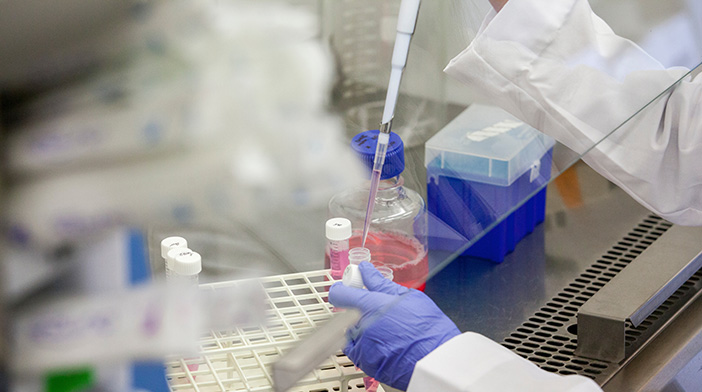The Mencoff family gives $50 million to establish medical research funds and support top medical scholars.
A new $50 million gift for the Warren Alpert Medical School will propel efforts to transform biomedical research and discovery into treatments and cures for disease.
The gift from Brown Chancellor Samuel M. Mencoff ’78 and his wife, Ann S. Mencoff, will help the Medical School secure its position as a world-class center of innovation in biology and medicine, Brown President Christina Paxson says.
Half of the Mencoff family gift will be dedicated to establishing endowed chairs and providing funding to support outstanding researchers—from laboratory scientists to physician-scholars—whose discoveries alleviate illness and disease. The remaining $25 million will support medical education and research.
The gift will support the Brown Institute of Translational Science (BITS), which is part of the Medical School. BITS is establishing teams of scientists and clinicians who convert scientific discoveries into medical breakthroughs that are tested in the clinic and brought to patients in the marketplace.
“The groundbreaking research of Brown faculty in the lab can see clinical applications at the bedside of patients in hospitals affiliated with Brown, and then lead to commercial applications,” Paxson says. “The partnership between academic medicine and local health care providers is one of the essential ingredients for sustaining quality health care and propelling economic progress in Rhode Island.”
The far-reaching benefits of investment in medical education and translational science make philanthropic investment in this area unique, Samuel Mencoff says. The co-CEO and cofounder of the private equity firm Madison Dearborn Partners in Chicago, Mencoff has served as chancellor of the Corporation of Brown University since July 2016.
“The potential of medical research is almost limitless,” Mencoff says. “What can be more exciting or important than finding cures and treatments for diseases that burden the lives of patients in Rhode Island and globally?”
Continue reading here.




